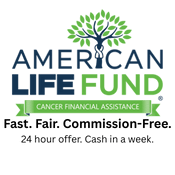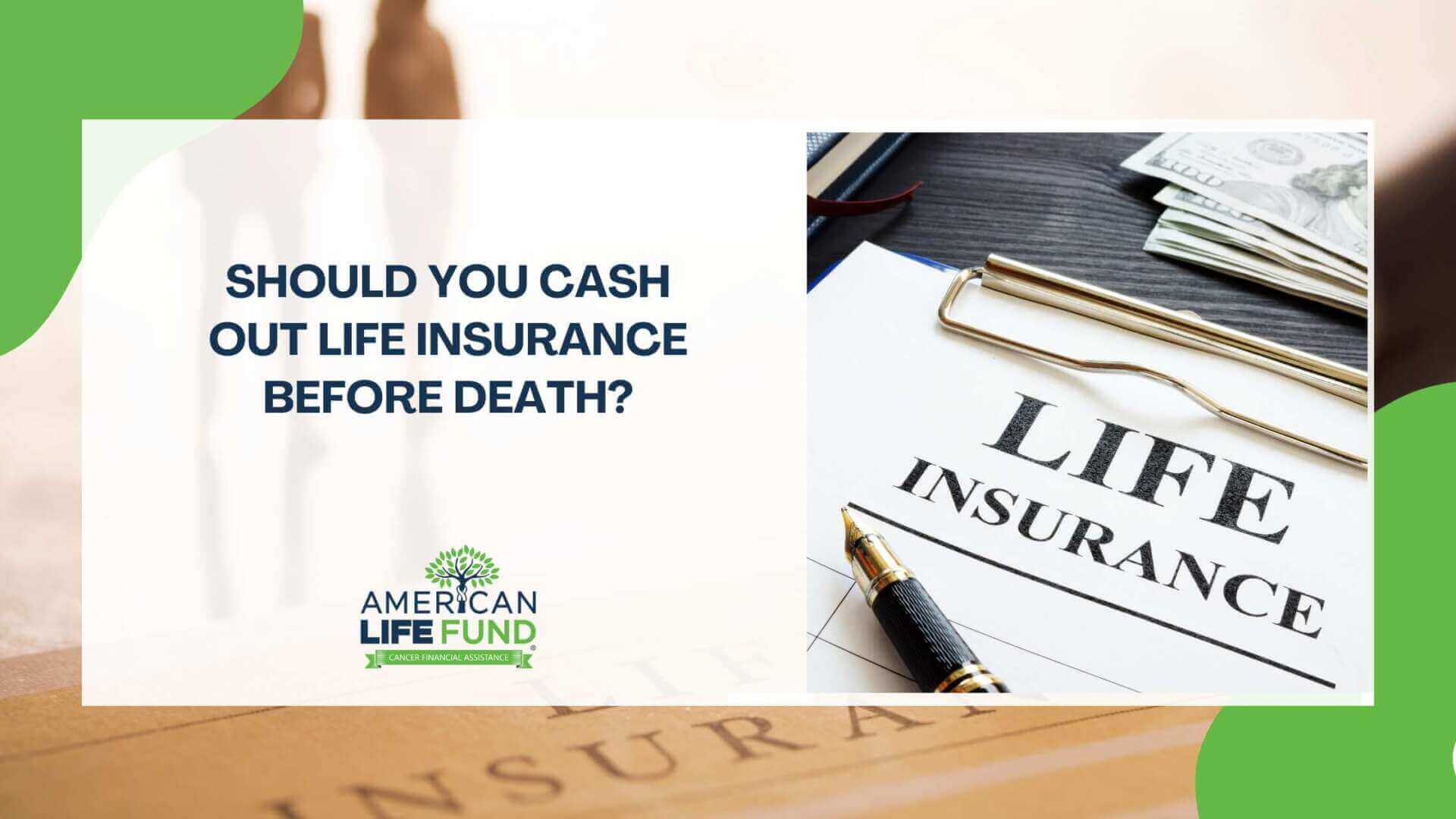Why This Question Comes Up
The idea of using a life insurance policy before it pays out isn’t something most people plan for—but it does become a serious consideration when money is tight and needs are immediate. Whether it’s medical bills, household costs, or just trying to avoid going into debt, there are situations where a person might stop and ask: Should you cash out life insurance before death?
It’s a fair question. For some, the policy was taken out years ago, back when priorities looked different. Now, life has shifted. Income might be lower. Expenses are higher. And the need for flexibility feels more urgent.
Now, life has shifted. Income might be lower. Expenses are higher. And finding financial breathing room can become a necessity—not a luxury.
Reasons You Might Consider Cashing Out
For many individuals, accessing funds from a life insurance policy becomes a consideration when confronting substantial financial obligations that surpass their current income and savings. Here are some scenarios where this option might be evaluated:
- Covering Medical Expenses
Managing a life threatening illness often means considerable medical costs. For instance, end-of-life care expenses are substantial, depending on the illness and required treatments. According to Debt.org, someone with a neurodegenerative disease may face average medical expenses of $61,004, while a patient with chronic kidney disease or end-stage renal disease might incur around $82,781.
- Managing Daily Living Expenses on a Fixed Income
Retirees often live on fixed incomes that may not keep pace with rising living costs. The average retired household spends approximately $4,345 per month on expenses such as housing, healthcare, food, and transportation. With limited income sources, covering these essential costs can become challenging.
- Supporting Family Members Financially
There may be a desire to provide financial assistance to family members, such as contributing to a grandchild’s education or helping a child with a large expense. Accessing the cash value of a life insurance policy can provide the means to offer this support without depleting other retirement savings.
- Paying Off Outstanding Debts
Carrying debt into retirement is burdensome, especially with limited income. Using the cash value from a life insurance policy to pay off high-interest debts reduces monthly financial obligations and provide greater financial stability.
- Covering Increased Utility and Home Care Costs
For individuals receiving home-based medical care, utility bills increase significantly due to the operation of medical equipment. Households with a chronically ill member using devices like electric beds or ventilators may see their energy bills rise substantially, adding to financial strain. (Marie Curie)
These aren’t edge cases—they’re everyday realities for many people holding a life insurance policy. Whether the goal is to stop making premium payments, cover mounting costs, or use the cash value while it still holds personal meaning, the next decision is practical: how can the money be accessed—and what are the trade-offs with each option?
The Pros and Cons of Each Cash-Out Option
If a life insurance policy has built up cash value, there are a few ways to access that money before the death benefit is paid. Each option has trade-offs—some more flexible, others more final.
Life Settlements
Selling a permanent life insurance policy through the life settlement industry provides a lump sum much greater than the surrender value. The buyer takes over the policy and its future benefits. This is often a viable choice for individuals over 75 or policyholders of any age who have been diagnosed with a serious illness.
- Pros: Highest payout potential. No debt.
- Cons: Policy is permanently transferred.
Withdraw Money
Some policies allow for partial cash value withdrawals. This can be useful when only a small amount is needed. But pulling money out reduces the policy’s death benefit, and depending on the amount, it may trigger a tax bill if the withdrawal exceeds the premiums paid.
- Pros: Simple, quick access to funds.
- Cons: Reduces future payout. May owe income tax.
Borrow Money Against the Policy
With permanent policies like whole life insurance or a universal life policy, it’s often possible to borrow money using the policy as collateral. There’s no credit check, and loans are typically lower in interest rate than personal or home equity loans. But unpaid loans, plus interest payments, shrink the final benefit.
- Pros: No tax, no credit impact, flexible repayment.
- Cons: Reduces final payout. Interest builds if unpaid.
Cash Surrender
This means canceling the policy completely to receive its cash surrender value—the total accumulated cash value minus any surrender fees or unpaid loans. Once it’s surrendered, the policy and its life insurance coverage are gone.
- Pros: Access to available cash value from the policy.
- Cons: No more coverage. Potential tax liability.
Each option gives access to the value built up in a policy, but they don’t work the same way—and the consequences vary widely. The right choice depends on what matters most: keeping coverage in place, getting the most money possible, or finding immediate relief from financial pressure.
What’s the Trade-Off?
Accessing money from a life insurance policy can relieve financial pressure—but it almost always changes the value of what’s left behind. A withdrawal or loan reduces the policy’s death benefit. A cash surrender ends the policy entirely. And even with a universal life policy or whole life, what seems like a simple transaction may come with fees, tax implications, or the permanent loss of coverage.
For anyone who planned to use their policy to support loved ones later, that matters. But so does the need for financial stability now—whether that means avoiding new debt, covering essential costs, or simply staying in control of how personal funds are used.
This is where a life settlement becomes worth serious consideration. Instead of taking a loan or walking away with less than the policy is worth, it may be possible to receive a lump sum from a buyer in the life settlement industry—often much higher than the cash surrender value. That cash can be used without restrictions, and there’s no repayment required.
See if you qualify for a life settlement with American Life Fund. It takes just a few minutes.
Some policies hold more value than they appear to on paper. The key is knowing how to unlock it in a way that works for your needs now—not someone else’s projections for later.
Does Your Policy Actually Let You Cash Out?
Not every life insurance policy gives you access to funds while you’re still paying into it. Some are built to provide coverage only, with nothing to draw from during your lifetime.
Term life insurance is one example—it covers a specific period and typically only pays out if a claim upon the insured’s passing is made during that time. These policies don’t include cash value, so there’s no balance to access.
Permanent insurance options—like whole life or universal life insurance—are different. These build value over time through a savings component. That money, often referred to as accumulated cash value, can potentially be accessed, borrowed against, or sold through a life settlement, depending on the policy terms.
But just because a policy builds value doesn’t mean it’s always the right time—or the best method—to take it out. The key is knowing which type you have, and what it really offers when you’re looking at your financial picture today.
When Saying Yes Makes Sense
There are moments when waiting for a policy’s long-term value doesn’t align with what’s needed in the present. In those moments, cashing out—or pursuing a life settlement—can be the most rational, least disruptive option available.
For example:
- Monthly bills exceed income. If Social Security or fixed retirement income isn’t covering the basics—housing, groceries, utilities—accessing life insurance cash can prevent debt and missed payments.
- Medical expenses are mounting. People facing serious health conditions often have ongoing costs not fully covered by insurance. A lump sum cash payment from a policy could cover home care, out-of-network treatments, or equipment—without relying on credit or family support.
- Premiums are becoming unmanageable. If keeping up with life insurance premiums is no longer feasible, the risk of losing the policy entirely becomes real. In this case, selling it may be better than letting it lapse.
- Family no longer depends on the policy. Some policies were purchased decades ago to provide for children who are now self-sufficient. If no one is relying on the death benefit, holding onto the policy may no longer serve a real purpose.
- You want to handle your own affairs. Using your own funds to make decisions about housing, care, or legacy giving can be a form of independence—especially when relying on others later may not be the preferred option.
These aren’t desperate choices. They’re practical ones—made with a clear view of today’s priorities, not just tomorrow’s assumptions.
A Final Thought Before You Decide
There’s no universal answer to whether someone should cash out a life insurance policy before it reaches the end. But there are real situations where doing so makes sense—especially when the focus shifts from future planning to present stability.
If you’re considering this step, make sure you’re getting more than just the minimum your policy offers. A life settlement may be an option that gives you more value, more flexibility, and more control over how your money is used—without needing to borrow or wait.
At American Life Fund, we help people explore these choices every day. If your policy qualifies, we may be able to help you turn it into a lump sum—quickly, and without pressure.
See if you qualify—it only takes a few minutes.
A policy you’ve paid into for years might be worth more than you think. If it can help meet a real need now, that’s worth looking into.
What happens if I stop paying premiums on a whole life insurance policy?
If premium payments stop, the insurance company may use any remaining life insurance cash value to keep the policy active for a limited time. Eventually, if the cash value runs out, the policy may lapse unless additional payments are made.
Can I transfer my life insurance policy to someone else if I don’t want to cash it out?
Life policies can’t be transferred like a bank account, but it’s possible to sell a life insurance policy through a licensed buyer. This is known as a life settlement, and it’s handled through a regulated process involving a licensed life insurance company or settlement provider.
Will I have to pay taxes if I access my policy’s cash value?
In many cases, you can access life insurance cash value up to the amount you’ve paid in premiums without owing taxes. However, if you take out more than that amount, you may pay taxes on the excess, especially if the funds come from cash surrender or a policy loan that isn’t repaid.
What happens to all the cash value if I outlive my policy?
If you hold a term policy, there’s no payout or cash value when the term ends. For permanent policies, you may receive all the cash value if you surrender the policy, but this usually cancels the death benefit. A life settlement could be a better option if the policy is still active and eligible.
Is it possible to use the cash value of my policy to pay for other insurance?
Yes, some policyholders use the cash value from one policy to fund another, especially if they’re restructuring their coverage or trying to reduce long-term costs. This can involve surrendering a policy or using a 1035 exchange, but it’s something best discussed with a licensed advisor or your insurance company.








